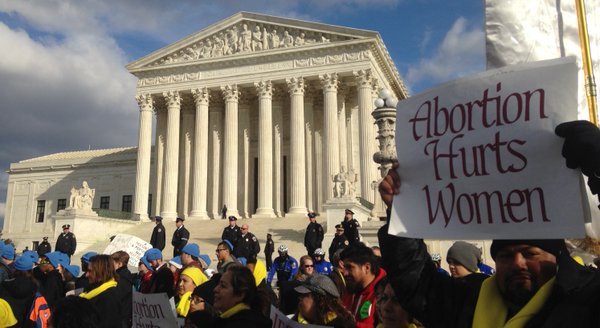The U.S. Supreme Court is scheduled to hear the first of two abortion-related cases Tuesday, this one involving a Kentucky law that protects unborn babies from brutal dismemberment abortions.
The case, Cameron v. EMW Women’s Surgical Center, is not about the pro-life law itself at this point. What the justices are considering is whether Kentucky Attorney General Daniel Cameron may take up the defense of the pro-life law after Gov. Andy Beshear refused to do so.
“I believe it’s my responsibility in the AG’s to defend those laws and we’re going to continue to do so,” Cameron told LEX 18 News. “I just say we’re going to stand up for life. And I’ve made no bones about that viewpoint. Again, I know some people don’t necessarily agree that we need to protect life.”
The law at the center of the case passed in 2018 when pro-life Republican Gov. Matt Bevin was in office. Bevin’s office defended the law in court after the EMW abortion facility in Louisville sued and Beshear, a pro-abortion Democrat who was state attorney general at the time, refused to defend the law.
Click here to sign up for pro-life news alerts from LifeNews.com
In the midst of the court battle, a state election occurred in which Beshear was elected governor and Cameron, a pro-life Republican, was elected attorney general. After federal courts blocked the law, Beshear’s office decided not to appeal. That was when Cameron submitted a request to be allowed the defend the law instead.
It is Cameron’s ability to intervene in the case that the Supreme Court will decide after the hearing Tuesday.
The American Civil Liberties Union and EMW Women’s Surgical Center are challenging the law itself as well as Cameron’s plea to defend it.
Cameron said that “as a matter of Kentucky law” he has the final say on whether to accept a decision that enjoined a state law. He noted that the lower court “did not blink” at prohibiting a state from fully defending “its law with the official of its choosing.” …
The ACLU argued that the federal appeals court hadn’t said that Cameron couldn’t intervene to defend state laws, but that he had to do so in a timely fashion.
“Enough is enough,” the ACLU’s Alexa Kolbi-Molinas said in a statement and added that the court “should put an end to the attorney general’s attempts to force people to continue their pregnancies against their will.”
The 2018 law prohibits abortions “that will result in the bodily dismemberment, crushing or human vivisection of the unborn child” while he or she is still alive. These gruesome methods commonly are used in D&E abortions in the second trimester.
If allowed to be enforced, the law could save hundreds of babies’ lives each year. According to state abortion data, 537 of the 3,312 abortions in Kentucky in 2016 were D&E abortions.
A federal judge blocked the law, and in 2020, the Sixth Circuit Court of Appeals affirmed the ruling. When Beshear’s administration decided not to appeal, Cameron filed a motion to intervene in the case.
“We’re exhausting every possible option to ensure that this law continues to be defended and is ultimately enforced,” Cameron said at the time. “The law extends compassion and dignity to the unborn by ensuring they are not subjected to the horror and pain of the dismemberment process while still alive.”
He said he wants to ensure the law continues to receive a full defense.
“We would never allow the dismemberment of any other living being, and we are going to continue fighting, all the way to the Supreme Court if necessary, so that it can’t happen to unborn children,” Cameron said.
A dismemberment abortion is a procedure in which the abortionist first dilates the woman’s cervix and then uses steel instruments to dismember and extract the baby from the uterus. The procedure is usually performed between 11 and 24 weeks LMP, when the baby is somewhere between the size of a lemon and a cantaloupe.
By 11 weeks, unborn babies already have fingers and toes, heartbeats and detectable brain waves. They can respond to touch, yawn, suck their thumbs and even show signs of being right or left handed.
The Supreme Court also agreed to hear a direct challenge to Roe v. Wade in December. That case, Dobbs v. Jackson Women’s Health, involves a 2018 Mississippi law that prohibits abortions after 15 weeks of pregnancy when an unborn baby is nearly fully formed.








